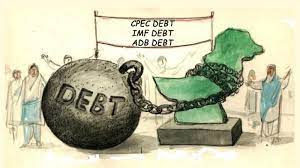Introduction:
The recent talks between Pakistan and IMF have sparked interest and concern in the country. With a history of incomplete programs, Pakistan must now navigate through various challenges to stabilize its economy. This blog post delves into the key benchmarks, concerns, and the path ahead for Pakistan's economy.
 |
| Pakistan-IMF Talks: Navigating Economic Challenges |
Understanding the Standby Arrangement:
Pakistan and IMF agreed on a 9-month standby arrangement for $3 billion to stabilize the macroeconomic situation. This arrangement serves as a temporary measure to bridge the gap before a new government takes over. However, it is crucial for Pakistan to meet the IMF's requirements and maintain fiscal discipline to ensure the success of the arrangement.
IMF Benchmarks for Review:
To qualify for the IMF review, Pakistan's key benchmarks include maintaining a fiscal deficit below 7%, meeting budgetary commitments, implementing energy sector reforms, and sustaining a market-based exchange rate. The IMF is closely monitoring Pakistan's ability to service its high debt and ensure sufficient fiscal space. It expects significant reforms in the energy sector and a reduction of losses in state-owned enterprises.
Pakistan's Current Economic Challenges:
Pakistan faces several challenges in its current economic landscape. The State Bank reserves are around $7 billion, but the overall budget deficit is projected to remain around 7.3%, which is above the IMF's ideal range. Additionally, Pakistan has faced budget cuts, reducing the allocation for development projects. The country also struggles with the balance between subsidies and reducing expenditures.
Liabilities and Concerns for the Government:
Interest payments and increased gas prices are major concerns for the Pakistani government. The liabilities of interest payments, especially in the energy sector, pose a significant burden. Consequently, the government has increased gas prices to generate additional revenue and cover losses incurred by gas companies. These challenges require careful management and decision-making by the government.
The Road Ahead for Pakistan's Economy:
In the coming years, Pakistan's economy faces tough decisions and challenges. The country must navigate potential IMF programs and the need to strengthen industries. The next elected leadership needs to prioritize financial discipline over populism, focusing on reducing the fiscal deficit, improving productivity, increasing exports, and selling off state-owned enterprises. Additionally, Pakistan should protect the poor, implement effective industrial and trade policies, and prioritize sustainable economic growth.
Pakistan's journey towards economic stability is not
without obstacles. While the IMF standby arrangement provides temporary relief,
a comprehensive approach is needed to improve the economy in the long run. By
addressing key challenges, implementing sound policies, and prioritizing
sustainable growth, Pakistan can avoid future bailouts and create a better
future for its population.




0 Comments